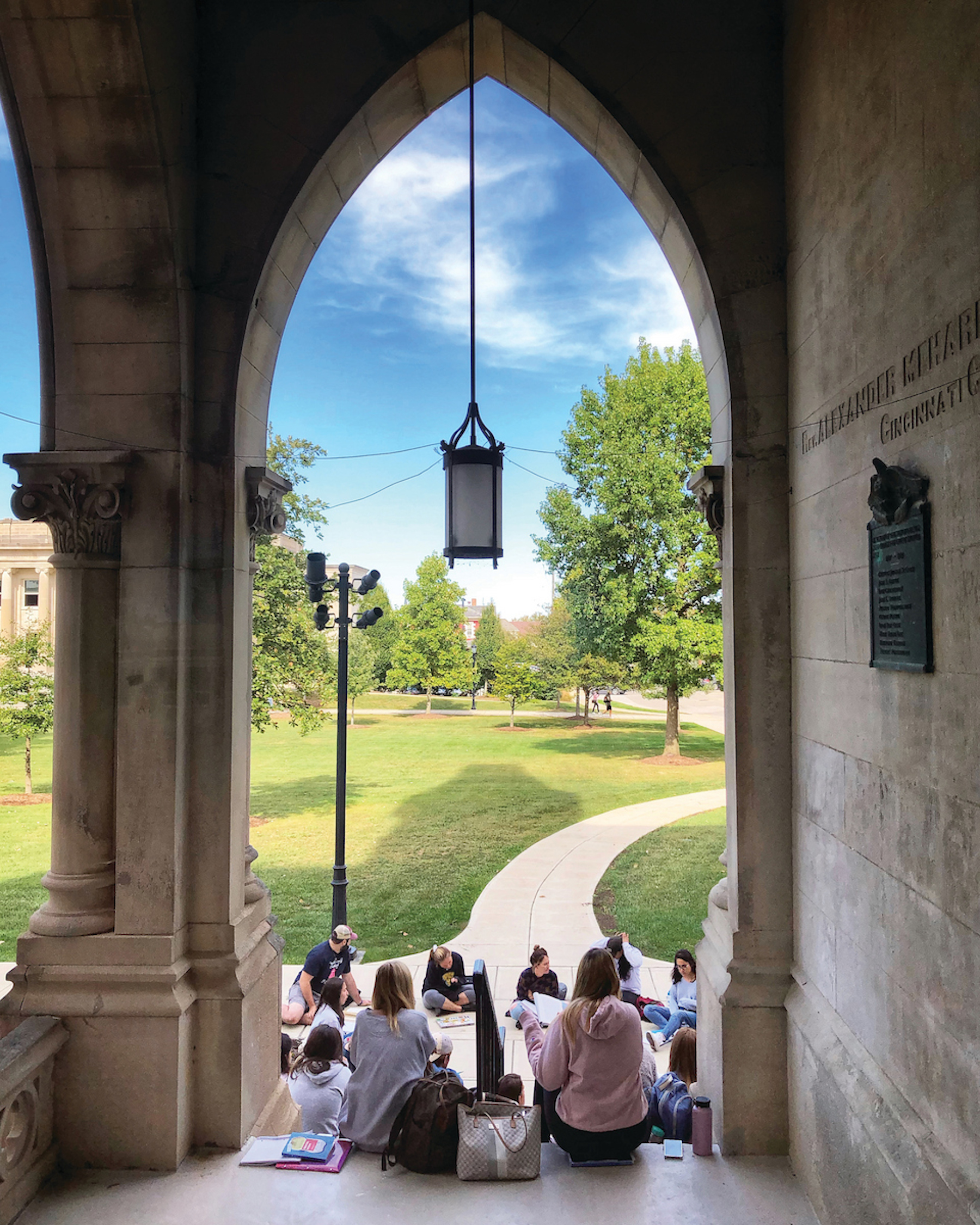
East College is DePauw University. And it has long held our attention. Approach from Anderson Street, and its framed silhouette is a promise of arrival. Walk the campus, and it becomes the axis around which daily life and cherished ceremonies revolve. Though not the precise geographic center, East College remains the physical, historical and spiritual heart – a landmark that commands our attention nearly 150 years after its 1877 dedication.
No other building on campus rivals its stature. East College has never been replaced and never truly been threatened, even as newer structures have come and gone. When age and time did cast doubt on its future, the DePauw community rallied, reaffirming the building’s singular place in our collective memory and ambition. Following its official listing on the National Register of Historic Places in 1975, a fundraising campaign aimed to restore its architectural integrity and reconfigure it for modern use. Rededicated in 1981, its utility extends far beyond the classes and events it hosts. East College embodies DePauw’s aspirations, traditions and values.
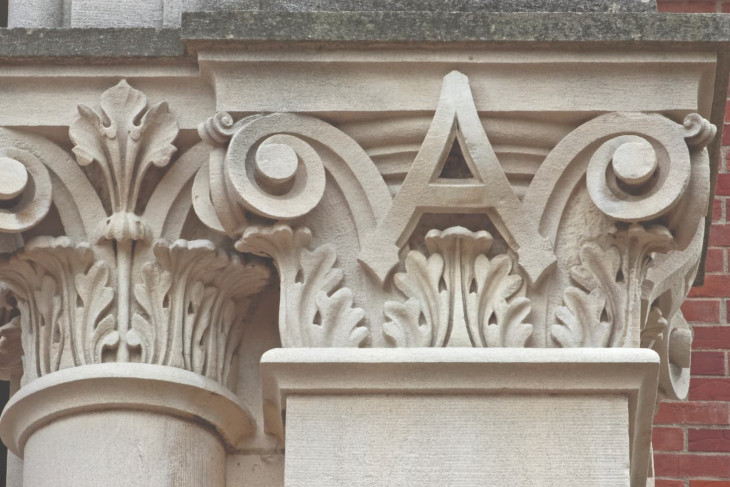
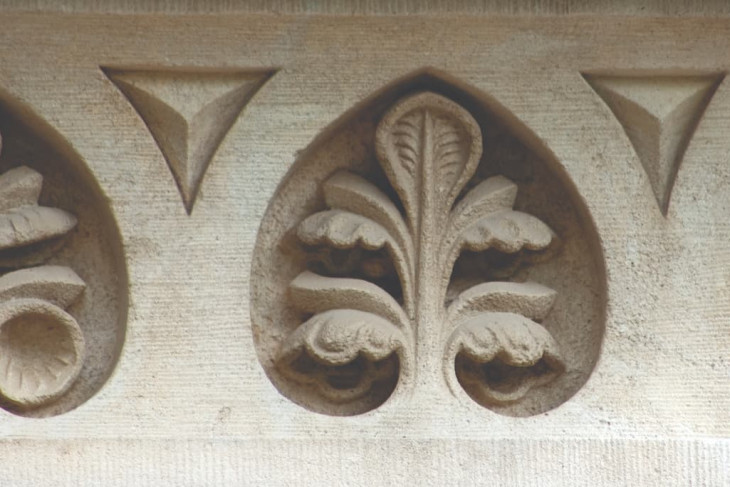
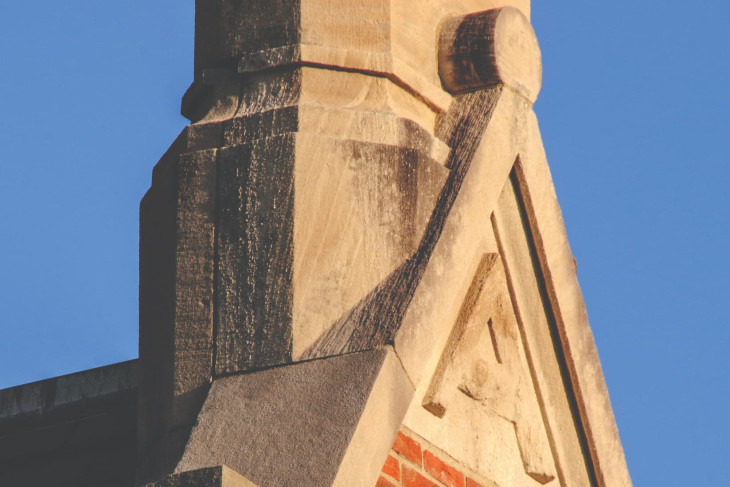
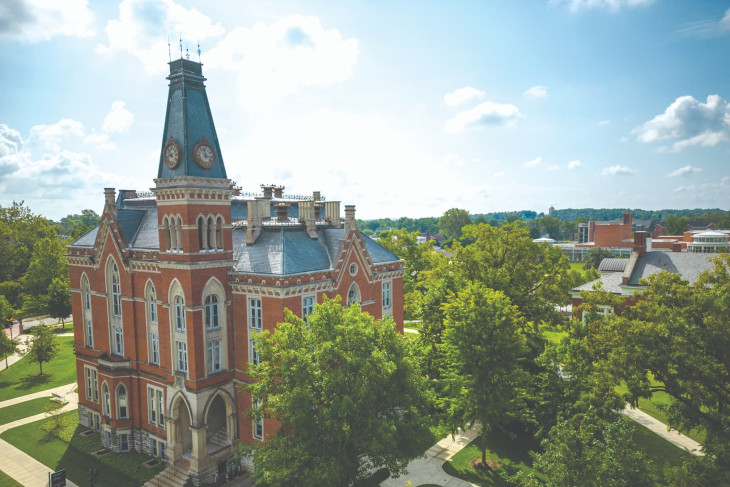
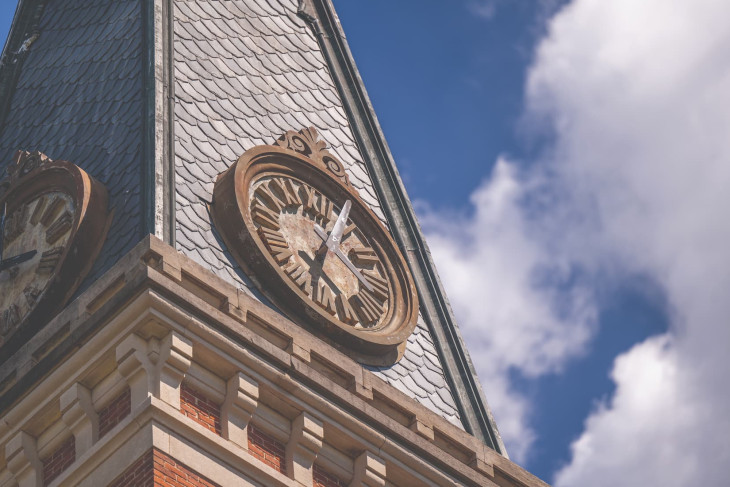
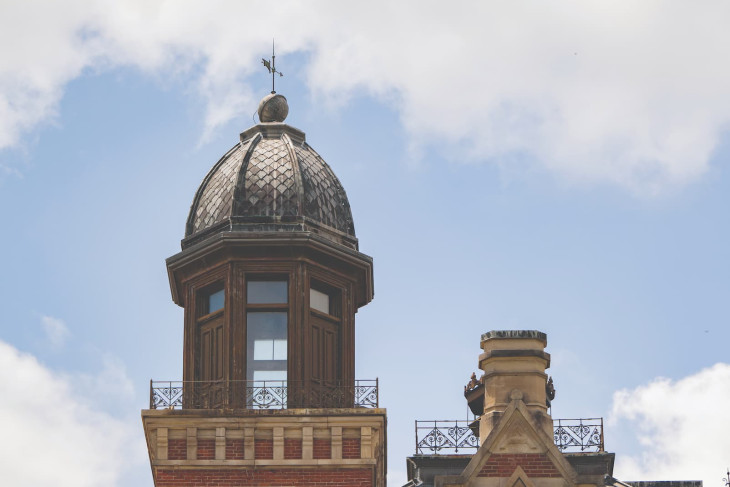
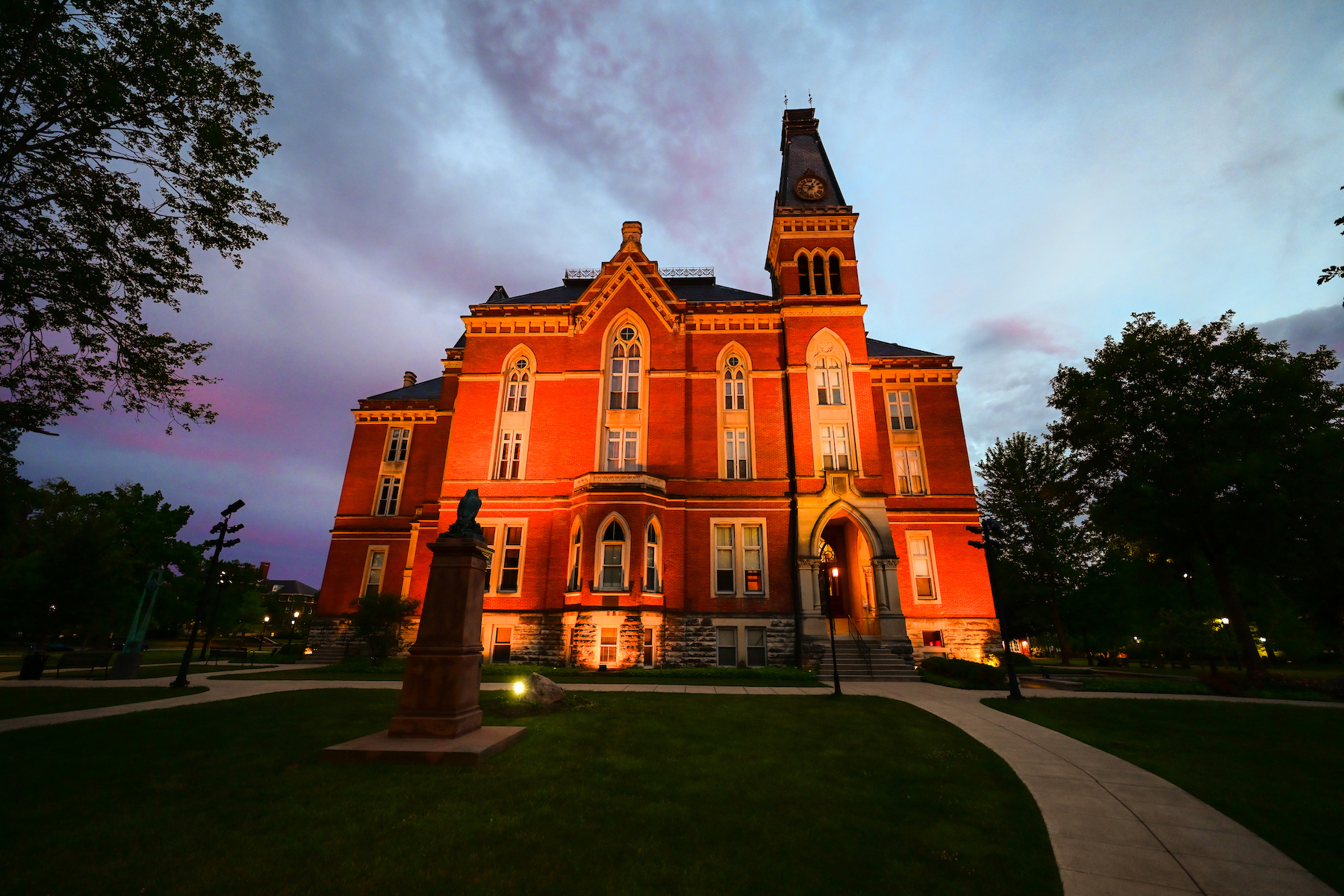
On the day its cornerstone was laid, university officials proposed that the building would symbolize Indiana Asbury’s intention to become a serious institution of higher learning – a beacon for liberal arts education in the Midwest. It was one of the first large-scale, architecturally sophisticated buildings in Indiana devoted to education. It housed classes in theology, law, literature and more, including science labs in the basement. It had a chapel, designed to be “one of the finest audience rooms in the West.” It even had an observatory tower and was home to the library.
East College’s eclectic architecture– with its Second Empire style, French mansard roofs, slender Italianate columns, pointed Gothic arches and three handsome towers – bestowed DePauw with more than utility; it gave the university an enduring beauty and sense of place.
Its construction, spanning 13 years during a period of economic depression, was a testament to perseverance and community. The city of Greencastle; the Methodist conference; and individuals like professor John Clark Ridpath, Jesse Meharry and Washington C. DePauw united to make the building – and university – possible. Their names and likenesses still grace the halls of East College, reminders of the vision and sacrifice that built DePauw’s foundation.
As East College approaches its sesquicentennial, we celebrate not only its lasting presence, but also the inspiration that first brought it to life. Philosopher Robert C. Solomon notes that reverence is not passive awe but an active responsibility. How will we continue to revere East College? For so many of us, another visit to campus is all that is required to feel East College’s pull.
Kevin Aikman's East College clock restoration. (DePauw Magazine, Fall 2023)
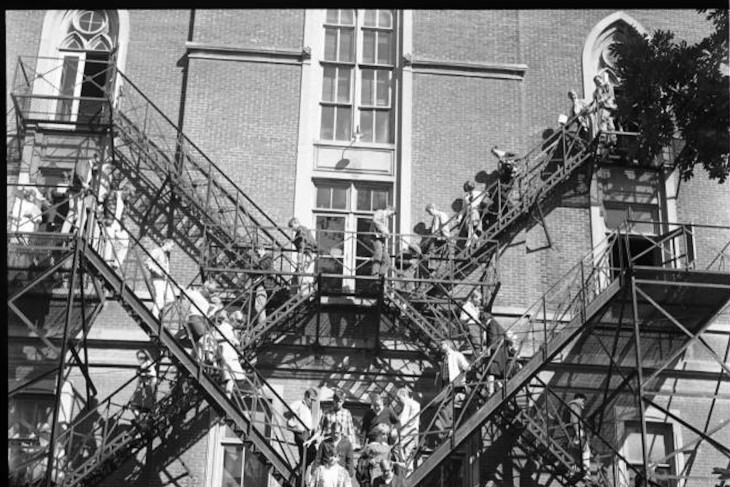
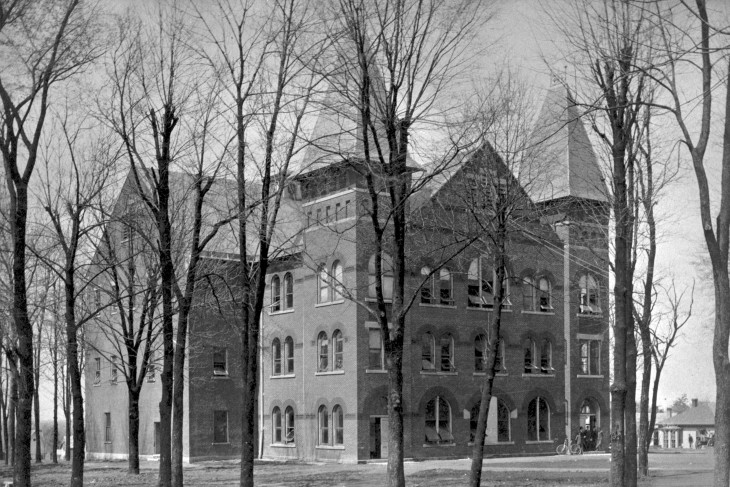
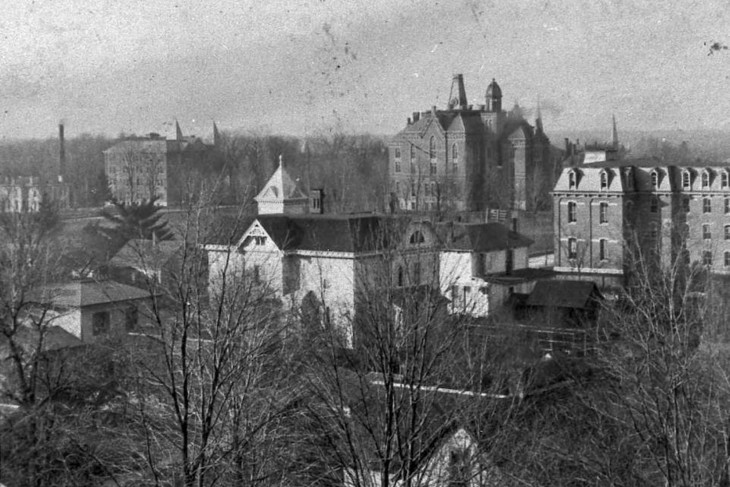
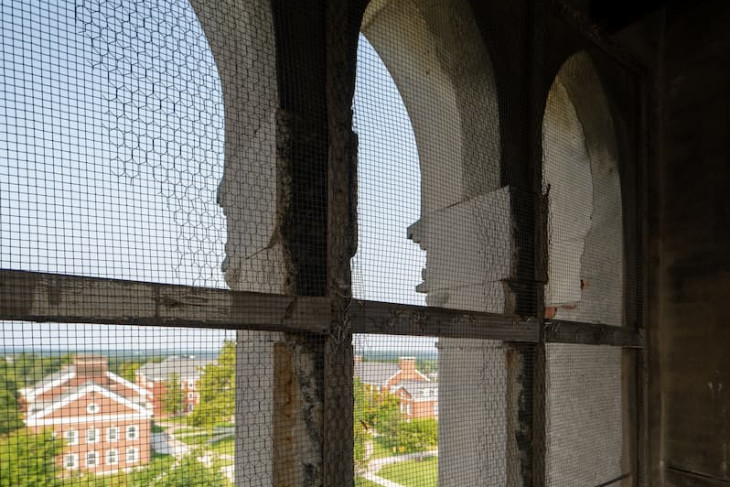
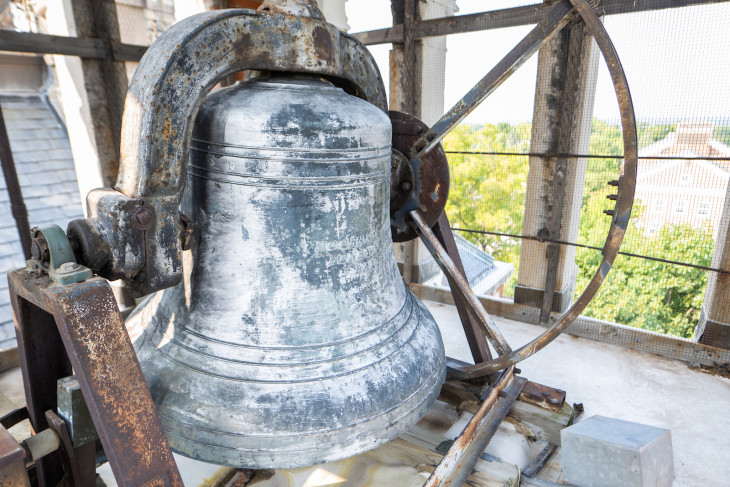
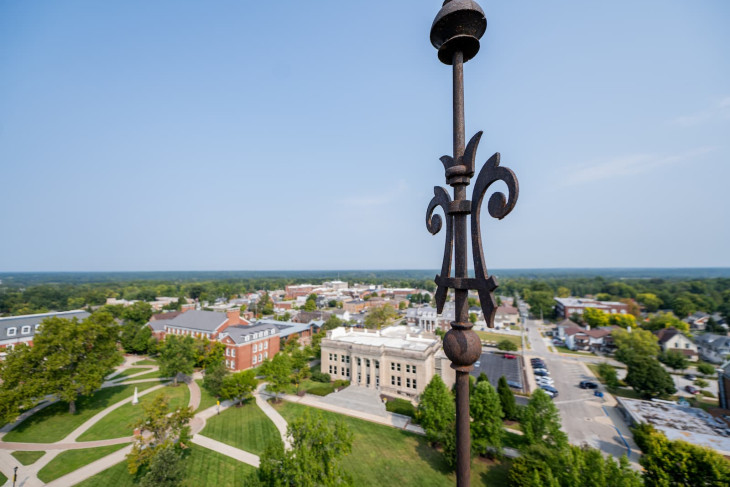
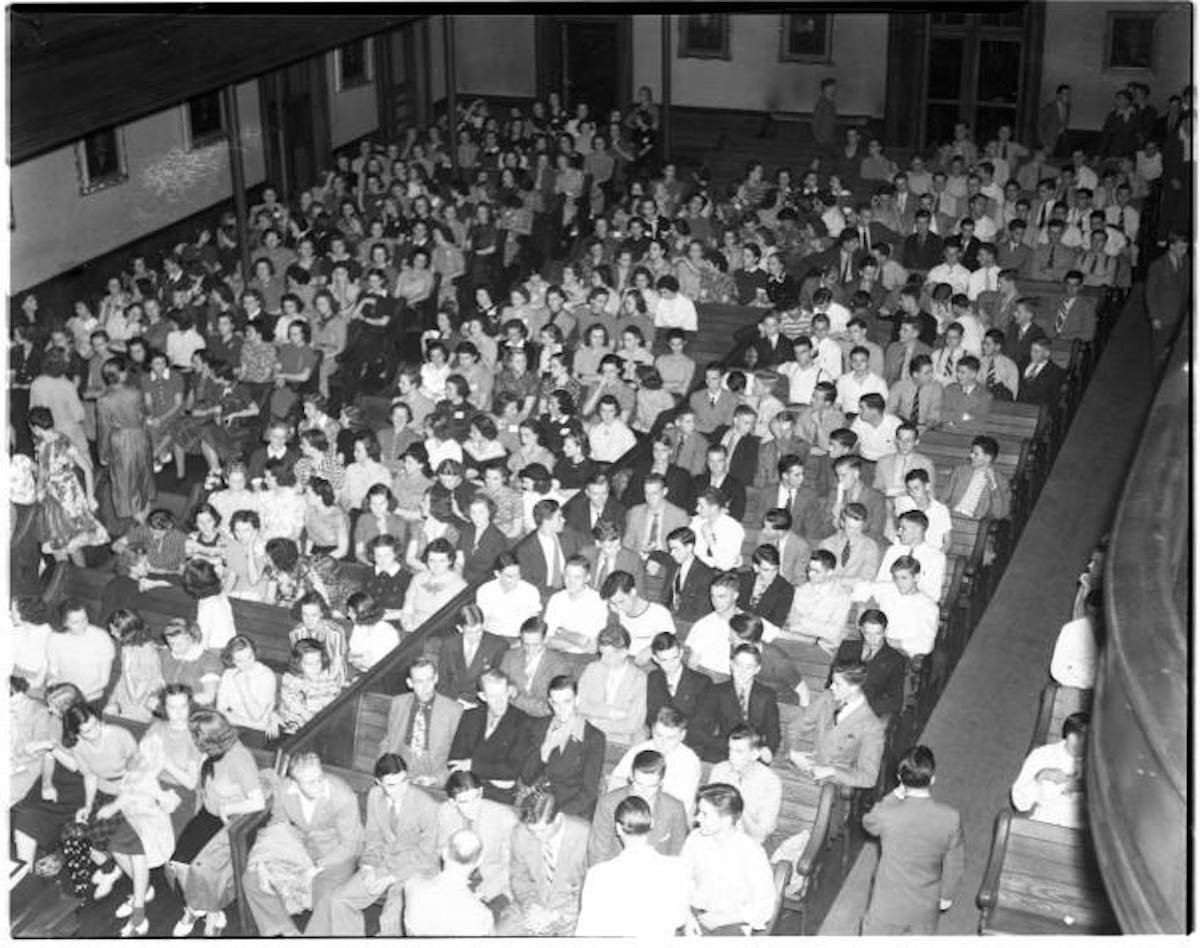
Did you know?
East College had a telescope. The east tower featured a cupola with tall windows. Climbing a ladder, one could access a refractory telescope to observe the heavens. The construction of McKim Observatory in 1884 made the modest East College tower lookout redundant. This was the same year Indiana Asbury became DePauw University. The west tower’s clock was a gift from the city of Greencastle and its citizens.
Why “East College”? The name reflected a larger plan of campus expansion. Prior to construction of East College, the feature building to the west had been called simply “The Edifice.” University planners changed this impressive name to West College as they laid out designs for the growing campus as a series of parks.
East College would be the lone building in Center Park, West College would be in West Park, and a catch-all building in East Park would be named Middle College. South Park was newly purchased land and housed just one small building. McKim Observatory would be a mile from campus on what would be called University Park.
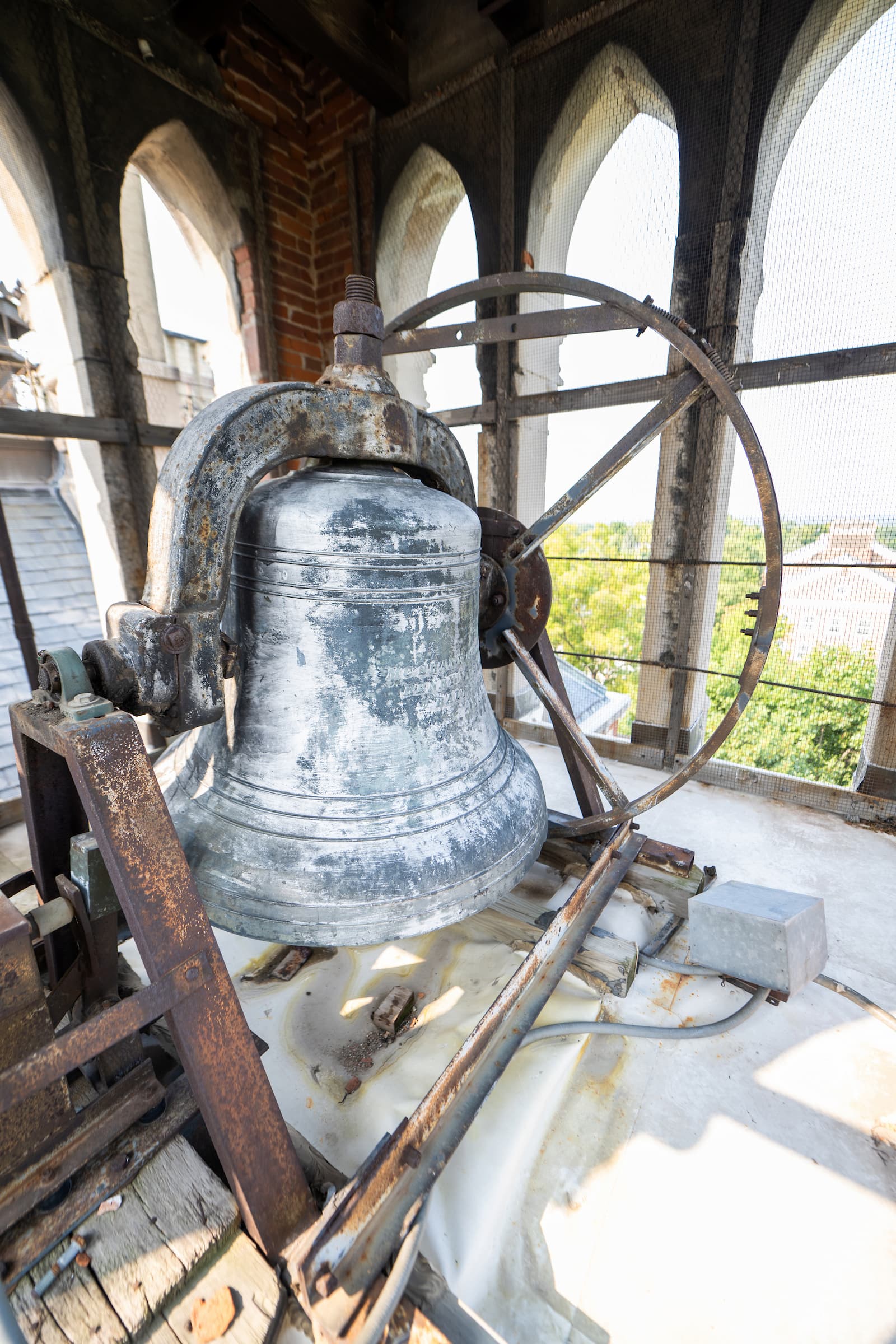
This photo essay originally appeared in the DePauw Magazine, October 2025.
Photos: Brittney Cooper and DePauw Library and Archives.
Text: "DePauw - A Pictorial History," John J. Baughman, Clifton J. Phillips, et al.; "DePauw Through the Years, George B. Manhart; T.C. Steele archives; DePauw University archives
Browse other stories
-
Athletics
-
Women's Tennis - DePauw Opens NCAC Play with Loss to Big Red
-
Men's Tennis - DePauw Completes Weekend Sweep with Win over North Central
-
Baseball - Tigers Score 10 in the Ninth in 15-5 Season-Opening Win
More Athletics
-
-
News
-
Francesca Seaman Speaks the Language of Mentorship
-
DePauw Announces $10 Million Matching Challenge for Student Scholarships
-
DePauw University Remembers Esteemed President Emeritus Robert G. Bottoms
More News
-
-
People & Profiles
-
Empie, Party of Five: One Family’s Unique DePauw Bond
-
Entrepreneurs Eric Fruth ’02 and Matt DeLeon ’02 Are Running More Than a Business
-
Rick Provine Leaves Legacy of Leadership and Creativity
More People & Profiles
-
-
Have a story idea?
Whether we are writing about the intellectual challenge of our classrooms, a campus life that builds leadership, incredible faculty achievements or the seemingly endless stories of alumni success, we think DePauw has some fun stories to tell.
-
Communications & Marketing
101 E. Seminary St.
Greencastle, IN, 46135-0037
communicate@depauw.eduNews and Media
-
News media: For help with a story, contact:
Bob Weaver, Senior Director of Communications.
bobweaver@depauw.edu.
 Solid Contact: Carter Knoll '25
Solid Contact: Carter Knoll '25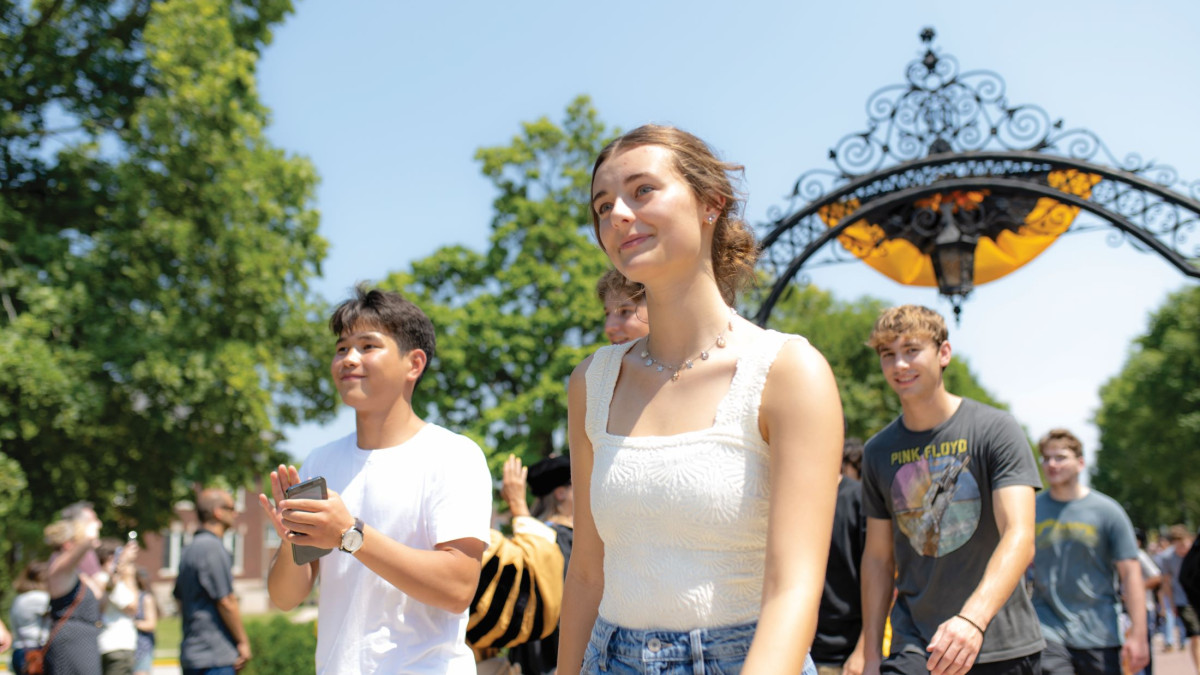 Access to the Dream
Access to the Dream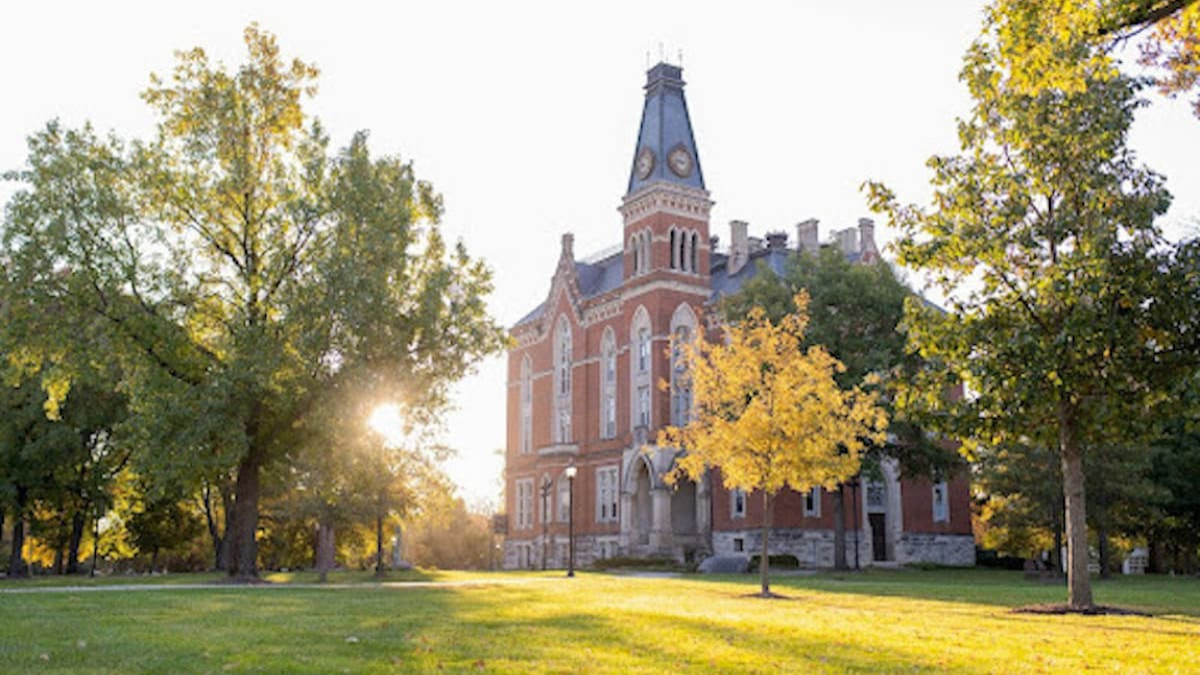 Icon
Icon 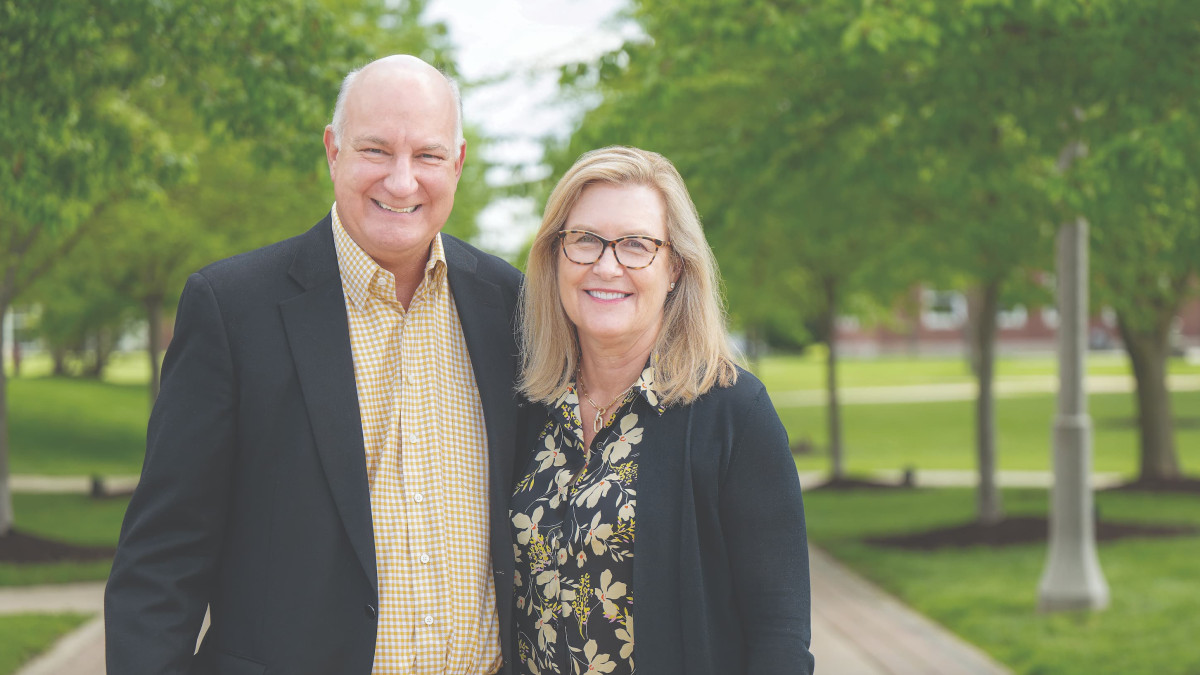 Giving While LIving
Giving While LIving